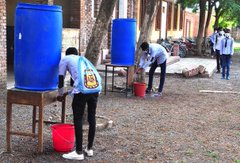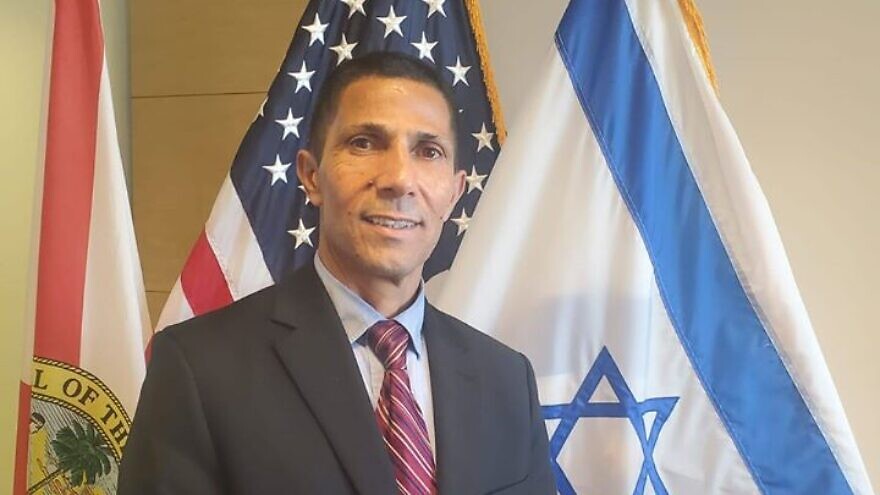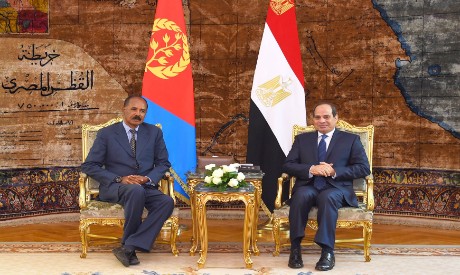NARI promotes micro-propagation of potato, date palm and banana through tissue culture
Monday, 06 July 2020
Written by Administrator
http://shabait.com/categoryblog/30784-n ... ue-culture

The National Agricultural Research Institute (NARI) of the Ministry of Agriculture is working hard to enhance productivity of fruits and vegetables through tissue culture technology.
According to Mr. Mussie Fekadu, Head of Bio-technology Research Unit, tissue culture is a modern plant biotechnology that is applied in many countries for mass production and superior planting material which is free from diseases. For this reason, tissue culture laboratory is rrequired to maintain high standard and innovative technologies.
Mr. Mussie stated that NARI established a tissue culture laboratory in 2014 at its headquarters in Halhale. The principal objectives of the undertaking were to produce virus free, large scale, healthy and improved high quality plant materials. Furthermore, the tasks incorporate production of genetically uniform and disease-free plant materials; and, rapid in-vitro multiplication which would, in turn lead, to higher productivity per unit area. Currently, the tissue culture laboratory is engaged in producing healthy plant materials of potatoes, date palms and bananas.
Mr. Mussie briefed this newsletter on ongoing efforts and achievements so far of tissue culture technology in the three selected horticultural areas. The scope of work spans three standard phases, namely; laboratory activities, net-shed house production and open field multiplication.

Potato Tissue Culture
In Eritrea, potato productivity was relatively low mainly due to prevalence of viral diseases. These viral diseases entail degeneration which is characterized by decrease in vigor and productivity after successive cultivation from the same lot of tubers. In this respect, production of seed tubers through tissue culture becomes an important mode of rapid multiplication of virus free seed potato. This has been pursued and the laboratory has the potential these days to produce 50-70 quintals of pre-basic (high grade) seeds annually.
As it happens, more than 350 quintals of potato per hectare, far beyond the country’s average, is being harvested in open field multiplication.
Date palm Tissue Culture
Date palm can be propagated through seed, vegetative offshoot and tissue culture. However, vegetative offshoot accumulates several bacterial, fungal and viral diseases which result in decline of productivity. Propagation through seed has many limitations such as seed dormancy, low rate of germination and progeny variation.
However, propagation using tissue culture is seen as one of well-proven innovative methods. Production of disease-free fruits, uniform growth, easy handling during transportation and high survival rate of seeds are among major advantages of using tissue culture approach.
According to Mr. Mussie, date palm tissue culture technology is much more difficult than that of potato and banana. Currently, micro-propagation of date palm has been carried out through somatic embryo-genesis and the ex-plants are found at shooting and rooting stages.
Parallel to this ongoing research in the country, a total of 7,800 vitro- plants of date palm were imported from a well-known tissue culture laboratory and kept at Massawa shed net for hardening. They are now being distributed to potential areas of date palm cultivation in the Northern and Southern Red Sea Regions. The first batch of 2000 date palms have already started to flower and bear fruits.
Banana Tissue Culture
Tissue culture in banana is a relatively simple technique that has been used for commercial propagations in several countries. In Eritrea, tissue culture technology is considered to be an appropriate option to provide sufficient quality and quantity of such materials to farmers. Tissue culture technology will augment easy access of farmers to large quantities of superior clean planting material with higher yield per unit area.

Mr. Mussie underlined that even though banana tissue culture is as its stage, 600 plantlets have been produced so far from Grandnein variety. These have now been planted for trial in Halhale, Golij and Agordet research stations.
Mr. Mussie further stressed that in the coming few years, this particular technology is expected to contribute significantly in higher productivity of the selected fruits and vegetables.
In very broad terms, plant tissue culture is a phased technique of growing plant cells, tissues, organs, seeds or other plant parts in a sterile environment on a nutrient medium. Culture media used for in vitro cultivation of plant cells are composed of basic components of macro and micro elements, vitamins, amino acids, carbon source, gelling agents and plant growth regulators.
_________
________________________
The Pathway for rinderpest eradication in Eritrea
Written & Compiled by Kesete Ghebrehiwet
http://www.shabait.com/articles/nation- ... n-eritrea-
Articles

Rinderpest, a viral disease, has a long history. It was known in classical times and appears to have maintained a reservoir of infection on the Russian steppes, from where epidemics periodically erupted to ravage the Middle East and Europe. The disease was brought to sub- Saharan Africa in1889 by Italian troops who came with infected cattle they had imported from India, Aden, and south Russia to feed the troops then occupying Massawa. Indigenous animals, previously unexposed to the disease, lacked immunity and, as a result, succumbed rapidly.
Rinderpest is very highly contagious and manifests itself in fever, restlessness, loss of appetite, blood-stained diarrhea, and often nasal discharges. Some infected animals become maniacal while the great majority are weakened rapidly and die.
Generally, the epidemic seems to gain in virulence as it spreads and the cattle were not the only animals affected. Sheep and goats died, too, and the disease virtually eliminated the populations of buffalo, giraffe and eland that it touched as well as most small antelopes, warthogs, bush pigs and forest hogs.
Rinderpest had caused tremendous amount of losses both in domestic and wild animals since its introduction to Eritrea and, therefore, Africa in 1887.
The consequence of the catastrophe was immense not only in terms of the hunger and death that followed the plague, but in terms of its social and psychological impact.
In Africa, cattle had long been accepted as a form of wealth that endowed their owners with power and authority. Almost instantaneously, rinderpest swept away the wealth of tropical Africa. The pastoralist aristocrats were ruined when out of the herds that had numbered tens of thousands, only a few dozen animals survived.
Herders in Eritrea never forgot the dire consequences and immense lose caused by rinderpest. Fortunately, the Government of Eritrea, in the wake of independence, introduced effective veterinary services across the nation and administered extensive vaccinations for about eight years. Rinderpest was ultimately eradicated from the country.
The experience and achievement in the eradication of rinderpest has impacted the growth in the number of livestock. Thus, the Government continues to give utmost priority to the provision of veterinary services for any viral disease that may devastate the health of livestock.

Dr. Yonas Weldu, head of Animal and Plant Health at the Ministry of Agriculture, highlights the major mitigation activities carried out in Eritrea against rinderpest and the achievement registered in the total eradication of the disease from the country.
In 1992, there was a small outbreak of rinderpest in Eritrea. But due to the mass vaccination campaign carried out in the country from 1991 to 1997 the incidence rate of rinderpest infection went down to negligible size and the country ceased vaccination in November 1997. According to Dr. Yonas, Eritrea annually vaccinated around 800,000 livestock in the period between 1991 and 1997.
In 1999, the country embarked on a five-year World Animal Health Organization (OIE) pathway for rinderpest eradication. The OIE pathway, a step-by-step approach to rinderpest eradication, is followed by nations the wish to declare themselves free from infection. The approach involves following a systematic set of procedures with specific milestones to show that the country has a fully functional animal health service built on an epidemiological surveillance network. It also involves stoppage of vaccinations, intensification of disease surveillance, monitoring and prompt reporting of the findings to World Animal Health Organization.
The Government of the state of Eritrea through the Ministry of Agriculture had been striving to fulfill the World Animal Health Organization requirements for rinderpest eradication. To meet the above obligations, the Government strengthened veterinary services to monitor animal health situation countrywide through the establishment of an effective reporting system. Thus, concerted surveillance activities were carried out in the period between 1998 and 2004.

Based on a comprehensive rinderpest eradication verification and application dossier prepared by the Ministry of Agriculture, the OIE scientific commission for Animal Diseases, at its 75th general session, recognized Eritrea as free from rinderpest (freedom from infection) on a country wide basis. Eritrea was certified free of rinderpest in 2004.
This is a very big achievement for Eritrea with regard to livestock development. It enhanced the country’s participation in international trade because of the confidence built with regard to the country’s disease control systems.
Globally, the 28th of June 2011 is an exceptional day. This was the day when the Food and Agriculture Organization of the United Nations (FAO) with the World Organization for Animal Health (OIE), announced that the world was free from the scourge of rinderpest, making it second only to smallpox as a viral disease to be eradicated globally.
It has now been nine years since FAO announced the total eradication of the highly contagious viral disease at a global level. The viral disease has been eradicated but its dire consequences have not yet been forgotten. FAO annually observes 28th June as a day that brought a total eradication of rinderpest.





















